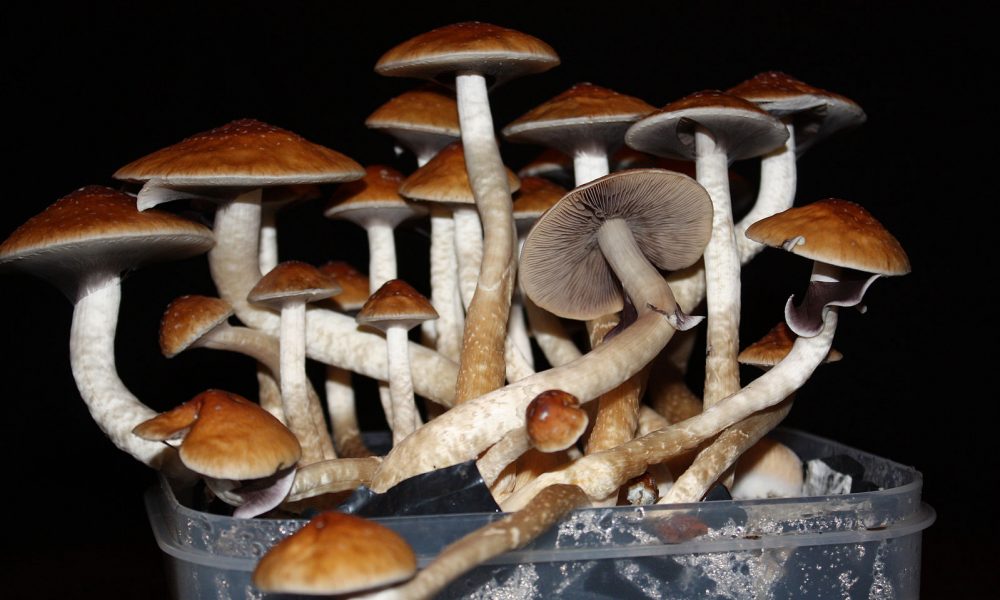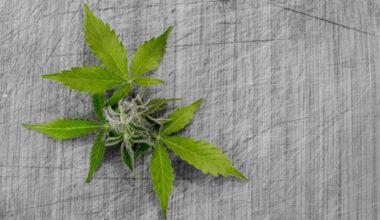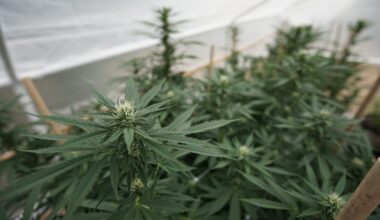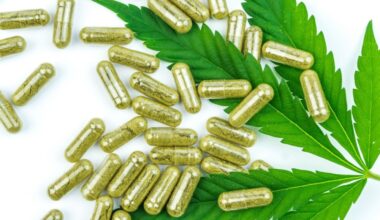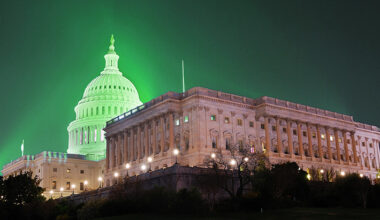A Seattle City Council committee considered a resolution on Friday that would decriminalize a wide range of activities around psychedelic drugs, including cultivation and sharing with others, by declaring those activities among the city’s lowest law enforcement priorities.
The council’s Public Safety and Human Services Committee heard comments from the proposal’s supporters, including Councilmember Andrew Lewis and the advocacy group Decrim Nature Seattle. While the panel did not vote on the draft resolution, Councilmember Lisa Herbold, who chairs the committee, said the full City Council will likely take up the measure in coming weeks.
“Hopefully the city—as tends to be the case on many impactful progressive issues in the state of Washington—can lead the way on setting the table for an important conversation many communities around the country are having,” Lewis, who introduced the measure, said at the meeting.
As introduced, the proposed resolution expresses the City Council’s support for what it calls “full decriminalization” around psychedelics used “in religious, spiritual, healing, or personal growth practices.” It would apply to plants or fungi that contain substances “including, but not limited to” psilocybin mushrooms, ayahuasca, igoba and mescaline, though it would not include the peyote cactus.
If adopted, the resolution would declare “that the investigation, arrest, and prosecution of anyone engaging in entheogen-related activities…should be among The City of Seattle’s lowest enforcement priorities” and request that the Seattle Police Department “move towards the formal codification and adoption of that practice as departmental policy.”
Watch Seattle lawmakers discuss the psychedelics resolution, starting at 1:58:10 into the video below:
It would further express the council’s intent to analyze the city’s municipal “to determine what changes would be necessary to protect from arrest or prosecution individuals who cultivate entheogens.” Those changes would be made through a subsequent city ordinance.
It’s already city policy neither to detain nor arrest individuals caught with psychedelics, nor to confiscate those substances, the resolution says—the result of a state Supreme Court decision earlier this year. But other activity, including cultivation and distribution, remain punishable by arrest and incarceration.
Supporters say there are compelling reasons to expand decriminalization beyond simple possession: The resolution points to the disproportionate impact of the drug war on people of color and low-income communities, calling decriminalization “an effort to begin to correcting the irreparable harm.” It also acknowledges the emerging potential of psychedelics, in conjunction with therapy, to treat a variety of mental health conditions, including depression and anxiety, post-traumatic stress disorder (PTSD), end-of-life anxiety, substance use-disorder and others.
The resolution was inspired in part by the City Council’s interest in reducing opioid-related deaths. In June, Lewis Herbold formally asked a task force to examine “public policy governing psychedelic medicines” as a way to combat the overdose epidemic. Late last month, the task force came back with recommendations that the city decriminalize psychedelics and consider removing criminal penalties around all drugs.
At the same time, the advocacy group Decrim Nature Seattle (DNS) has been lobbying the council to make the policy change around plant- and fungi-derived psychedelics. The group began its work two years ago, and in May it submitted a draft ordinance to Lewis’s office at the councilmember’s request. Members have also appeared regularly at council meetings to urge the policy change.
Lewis told Marijuana Moment this month that it’s his “personal goal” to introduce an ordinance to decriminalize psychedelics by the end of this year. “And frankly, if there’s sort of a consensus and there’s lightning in a bottle, I don’t think it’s inconceivable that an ordinance could be passed this year,” he said. “I think it’s actually pretty reasonable.”
In an email to Marijuana Moment ahead of Friday’s committee meeting, Tatiana Luz Quintana, DNS’s co-director and co-chair of education and outreach, said the group expects the resolution “will prepare the council to spend time creating a work plan to address full decriminalization, meaning possession, cultivation, social sharing (non-monetary exchange) and community-based healing and ceremony.”
“The implications of this policy change would be long lasting,” Quintana said. “Within Seattle, after these reforms, many people who operate in the underground will be more free to advertise their services. Decriminalization will also promote a consciousness shift in the public, increasing exposure to conversations around psychedelics, helping to break the ice and break down stigmas, and create an environment ripe for integrating these substances into our culture.”
DNS said the change will allow Seattle to establish best practices, including around education and community-based healing. Advocates also presented to the City Council committee a sign-on letter in support of decriminalization signed by more than 40 area healthcare professionals.
The policy change would not apply to peyote, which is excluded from its definition of entheogens due to the cactus’s special cultural significance to certain Native American peoples and the ongoing effort to protect the plant. Peyote matures slowly and is currently categorized by conservationists as “vulnerable” after an uptick in illicit harvesting. The cactus, native to Mexico and parts of the American Southwest, has no federal protection in the U.S., while in Mexico it can be harvested legally only by Indigenous groups.
Both the city resolution and the opioid task force recommendations also call for psychedelics reform at the state level. The resolution says the city’s Office of Intergovernmental Relations add to its agenda for the 2022 legislative session “support for full decriminalization of entheogens at the state level, including the drafting of legislation that could be sponsored by a state legislative representative.”
Like much of the rest of the country, Washington State is contemplating major changes in how it treats drug use. Earlier this year, lawmakers considered legislation that would have removed all penalties for possession of relatively small, “personal use” amounts of drugs and instead invested in treatment and recovery services. While that bill died in committee, lawmakers from both parties acknowledged at the time that the state’s drug control apparatus was broken.
Shortly thereafter, the state Supreme Court overturned Washington’s felony law against drug possession completely, sending lawmakers scrambling to replace the law. Ultimately they approved a modest reform, reducing the state’s felony charge for drug possession to a misdemeanor and earmarking more money for treatment.
Earlier this month, advocates announced a push to put a measure on Washington’s 2022 ballot that would decriminalize all drugs and invest state money in treatment and recovery.
Jurisdictions across the country are increasingly removing or reducing penalties around drug possession and consumption, especially when it comes to psychedelics. Since Denver in 2019 became the first U.S. city to decriminalize psilocybin mushrooms, a number of states and municipalities have made similar changes to dismantle the drug war.
Oregon voters passed a pair of initiatives last November to legalize psilocybin therapy and decriminalize possession of all drugs. On the local level, activists in Portland are mounting a push to have local lawmakers pass a resolution decriminalizing the cultivation, gifting and ceremonial use of a wide range of psychedelics.
Washington, D.C. voters also approved a ballot measure last year to deprioritize enforcement of laws criminalizing psychedelics.
In California last week, activists were cleared to begin collecting signatures for a historic initiative to legalize psilocybin mushrooms in the state. Oakland and Santa Cruz have already enacted psychedelics decriminalization.
Detroit currently stands to become one of the next major cities to decriminalize psychedelics, with the reform proposal making the local ballot for this November.
Elsewhere in Michigan, the Ann Arbor City Council has already elected to make enforcement of laws prohibition psychedelics like psilocybin, ayahuasca and DMT among the city’s lowest priorities—and lawmakers recently followed up by declaring September Entheogenic Plants and Fungi Awareness Month. Advocates have also introduced a reform resolution to the Grand Rapids City Council.
Massachusetts cities that have enacted the policy change include Northampton, Somerville and Cambridge. In July, state lawmakers heard testimony about a bill to create a task force charged with studying the implications of legalizing psychedelics like psilocybin and ayahuasca.
The governor of Connecticut recently signed legislation recently that includes language requiring the state to carry out a study into the therapeutic potential of psilocybin mushrooms.
Texas also recently enacted a bill to require the state study the medical benefits of psychedelics for military veterans.
A New York lawmaker introduced a bill in June that would require the state to establish an institute to similarly research the medical value of psychedelics.
The Maine House of Representatives passed a drug decriminalization bill this year, but it later died in the Senate.
In Oakland, the first city where a city council voted to broadly deprioritize criminalization of entheogenic substances, lawmakers approved a follow-up resolution in December that calls for the policy change to be adopted statewide and for local jurisdictions to be allowed to permit healing ceremonies where people could use psychedelics.
Meanwhile, Denver activists who successfully led the 2019 campaign to make the city the first in the U.S. to decriminalize psilocybin possession have set their eyes on broader reform, with plans in the works to end the criminalization of noncommercial gifting and communal use of the psychedelic.
In a setback for advocates, the U.S. House of Representatives recently voted against a proposal from Rep. Alexandria Ocasio-Cortez (D-NY) that would have removed a spending bill rider that advocates say has restricted federal funds for research into Schedule I drugs, including psychedelics such as psilocybin, MDMA and ibogaine. However, it picked up considerably more votes this round than when the congresswoman first introduced it in 2019.
Report provisions of separate, House-passed spending legislation also touch on the need to expand cannabis and psychedelics research. The panel urged NIDA to support expanded marijuana studies, for example. It further says that federal health agencies should pursue research into the therapeutic potential of psychedelics for military veterans suffering from a host of mental health conditions.
There was an attempt by a Republican congressman to attach language into a defense spending bill that would promote research into psychedelics therapy for active duty military members, but it was not made in order in the House Rules Committee this week.
Report provisions of separate, House-passed spending legislation also touch on the need to expand cannabis and psychedelics research. The panel urged NIDA to support expanded marijuana studies, for example. It further says that federal health agencies should pursue research into the therapeutic potential of psychedelics for military veterans suffering from a host of mental health conditions.
NIDA also recently announced it’s funding a study into whether psilocybin can help people quit smoking cigarettes.
There was an attempt by a Republican congressman to attach language into a defense spending bill that would promote research into psychedelics therapy for active duty military members, but it was not made in order in the House Rules Committee this week.
In May, lawmakers in Congress filed the first-ever legislation to federally decriminalize possession of illicit substances.
Read the full Seattle psychedelics decriminalization resolution below:
Photo courtesy of Wikimedia/Mädi.
Medical Disclaimer:
The information provided in these blog posts is intended for general informational and educational purposes only. It is not a substitute for professional medical advice, diagnosis, or treatment. Always seek the advice of your physician or other qualified healthcare provider with any questions you may have regarding a medical condition. The use of any information provided in these blog posts is solely at your own risk. The authors and the website do not recommend or endorse any specific products, treatments, or procedures mentioned. Reliance on any information in these blog posts is solely at your own discretion.
